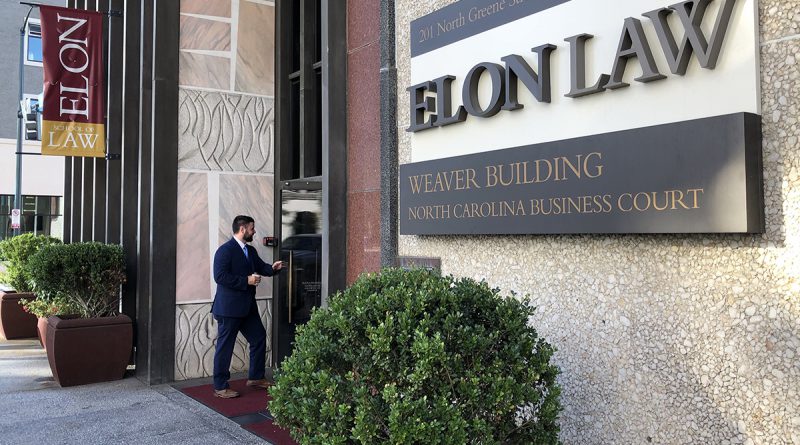Applicant boom drives record first-year law school classes
Law firms are already projecting a reduced need for entry-level lawyers due to the growing influence of artificial intelligence in the legal sector.
The Legal Grounds coffee shop at Elon University School of Law is busier than ever, fueled by the surge of record-high first-year law students this fall.
Elon, one of seven U.S. law schools reporting historic new classes, is part of a nationwide trend that includes prestigious institutions such as Harvard, where first-year enrollment has reached levels not seen in over a decade.
“It’s been a boon for the coffee shop,” said Elon Law Dean Zak Kramer. With nearly a 10% increase in first-year students across its two campuses, Elon is working to ensure classrooms have enough chairs, study spaces, and resources to accommodate the influx of students.
Preliminary data suggests that the corridors, classrooms, and libraries of law schools nationwide are more crowded than in previous years. This uptick comes on the heels of a blockbuster admissions cycle: the national applicant pool has grown by 18%, building on a strong 2024 that saw a 6% increase in applicants and nearly 40,000 first-year Juris Doctor students nationwide.
Though impressive, this number remains below the historic high of over 52,000 first-year students in 2010.
Other schools joining Elon’s growth include the University of Hawaii, Rutgers University, Pace University, Liberty University, Faulkner University, and the University of New Hampshire. Harvard Law School enrolled 579 first-year students this year, about 3% more than its usual class of 560, marking the largest intake since at least 2011.
Meanwhile, universities including Tennessee, Buffalo, Duquesne, Drake, Samford, Cleveland State, Maine, Southern Illinois, and Ave Maria also reported their largest first-year classes in over a decade.
However, the surge in law school enrollment raises questions about the future job market for graduates. Nikia Gray, Executive Director of the National Association for Law Placement, warns that larger first-year classes could contribute to an oversaturated legal job market by 2028.
Law firms are already projecting a reduced need for entry-level lawyers due to the growing influence of artificial intelligence in the legal sector.
“The unknown here is how quickly that change will happen across the whole market and whether the impact will be felt before or after these students graduate,” Gray said.
Despite these concerns, recent history offers reassurance: the class of 2024 enjoyed record-high employment, with 93% of graduates securing jobs within ten months of leaving campus. For now, law schools continue to enjoy robust enrollment, energized campuses, and yes—a thriving coffee business.



